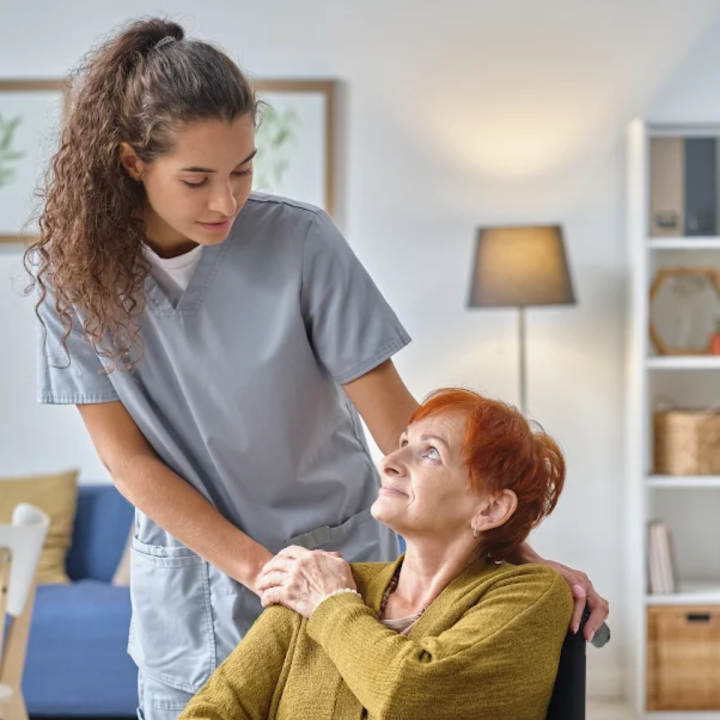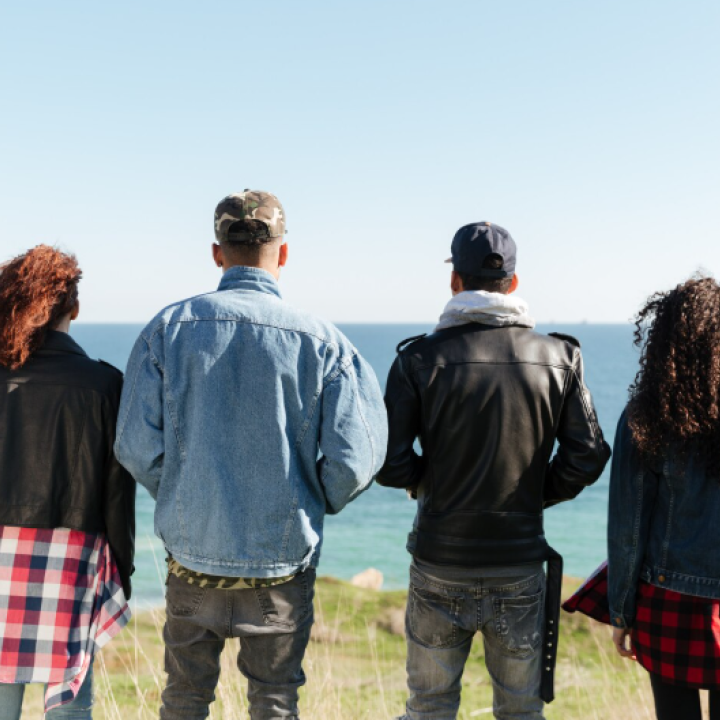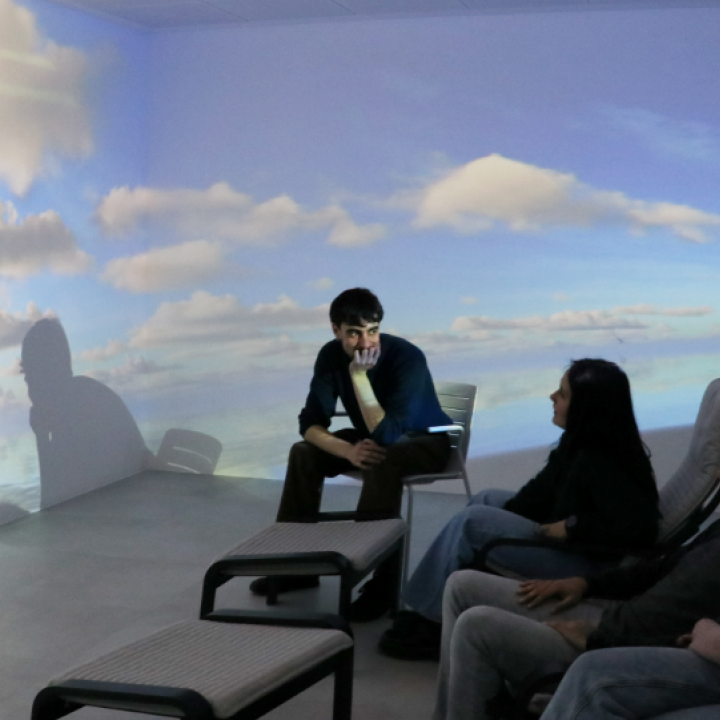"It cost me the whole year, but in the end I learned that my happiness does not depend on other people. I learned that to be happy I don't need people who don't value me and don't want to be around me. I should not be so nasty to talk so dry, I have after using my rationality, to let people go, and I have realized that I had other people by my side who are much more worthwhile. At the same time I have been able to understand my feelings, to empathize more and to understand why I behave in a certain way. I have discovered my dreams and my goals and every day I have more clear what I want to become, above all, the most important thing is that I have broken with less healthy behaviors, thanks to educators, educators, psychologist and many people love to teach me how healthy and strong people really are".
Raquel Guas, attended by a Psicointegra accompaniment service, from Suara Cooperativa.
Mental health in the adolescent stage is currently becoming a topic of concern and vital interest due to the increase in diagnoses of mental disorders and the rising suicide rate.
According to a study by the National Youth Council of Catalonia (CNJC) and the Mental Health Federation of Catalonia, approximately 1 in 7 young people experience a mental health disorder during their lifetime. Alarmingly, suicide has become the leading cause of unnatural death among this demographic.
What is happening to adolescents?
Adolescence is a phase of profound changes, encompassing physical, biological, social and psychological aspects, involving some "brain chaos." It is a transition to adulthood that involves constant self-exploration and re-evaluation of identity, beliefs and values. These changes are also palpable on a cerebral scale, since this stage involves the construction, elimination and restructuring of the same neuronal connections, a phenomenon known as "synaptic pruning" and which is involved in the consolidation of learning for the adult stage. In addition, at this stage, cortisol levels -the stress hormone- are higher than in adulthood, exposing the adolescent to a greater risk of suffering anxiety, anger responses and experiencing worries with greater intensity.
On the other hand, the social context is a crucial factor in the mental health of young people, because their biology is focused on social relationships with others. In this sense, the COVID-19 pandemic has accentuated certain trends in aspects with restrictions that have limited their socialization and isolated many of them for long periods of time, seriously affecting their mental health and emotional well-being. However, it has shown that the social experiences of young people are essential in order to have the tools to protect their psychological health in adulthood.
What can happen when an adolescent has had stressful life experiences during early childhood?
Furthermore, evidence and clinical experience indicate that adolescents are more vulnerable to mental health problems if they have experienced traumatic situations during early childhood, such as abuse or neglect by close adults. In other things, difficulties in managing stress, making rational decisions and maintaining emotional stability are identified. In fact, some studies have found a weakening in the functionality of various brain areas such as the prefrontal cortex or the hippocampus.
Despite this life-stage vulnerability, adolescence is a fertile time to lay positive foundations, with opportunities to change and acquire more adaptive strategies, habits and behaviors for a functional and stable life. The brain is plastic and adaptable throughout life, and this stage allows the creation of new connections and the repair of maladaptive activities. However, it takes time and dedication on the part of the referring adults to achieve this.
Taking into account this casuistry, Suara Cooperativa has a lot of experience in creating therapeutic spaces and innovative projects to accompany children and adolescents, with an integrative, preventive and also restorative approach. At the same time, it incorporates a social perspective, focused on the person and his or her relationship with the environment.
In this context, Psicointegra offers a psychological accompaniment service for children, adolescents and adults of reference, following family members, professionals or clinicians. This service specializes in trauma therapy, providing a safe space, called Sala de Valents, where young people can express themselves and explore their emotions and thoughts.
"Psicointegra is a space where I have been able to find the support I needed, to be listened to and helped, which has allowed me to know myself better and to manage my emotions as well as possible. They have accompanied me to face my fears, my worries, my insecurities, my low self-esteem, in a very simple and practical way, with writings and other forms of artistic expression. "The hour of therapy you have with them is the best hour of the week, not only because it sends you safely within the four walls of the room of the brave, but because whoever accompanies you in your most intimate moment of opening it tea, respects you, listens to you, hugs you, laughs or cries with you." I have learned that there are jobs that are much more than a job."
Raquel Guas, attended by a Psicointegra accompaniment service, from Suara Cooperativa.

In addition, with the innovation and inclusivity aspect of tradition in the house, Suara Cooperativa is working on a pilot project that makes use of immersive reality as a tool to improve the mental health of adolescents. This technology, hand in hand with the Broomx entity, is part of one of the key bets of Suara's Social Living Lab, which is the first incubator specialized in care in Catalonia. The tool allows young people to experience emotions and situations in a safe environment and an innovative therapeutic space for professionals, with treatments that add value to conventional ones. At the same time, this approach can be especially effective, since many adolescents feel identified with the technology and could favor their adherence to therapy.
Adolescence is a period of vulnerability, but it also becomes a time of opportunity to modulate learning and acquire adaptive psychological and emotional strategies.
For this reason, at Suara, child and adolescent mental health becomes a key aspect that is worked from different multidisciplinary projects, taking into account the social outlook, innovation and therapeutic experience achieved, so that it translates into the growth and well-being of the young people served.
Jéssica Andreu Almansa
Psychologist, Traumaterapeuta and Social Educator. Director of the UEC Cambrils, director of SIAD SAI Cambrils and Head of mental health projects for children and adolescents.
Lydia Castillo Rodriguez
Social Educator and Traumaterapeuta. Director of Piso lo Pasador and Psicointegra.
More information
Spear, L. P. (2012). Adolescent neurodevelopment. Journal of Adolescent Health, 52, pages S7-S13.
Suara launches the Psicointegra therapeutic support program for children and adolescents at risk.





